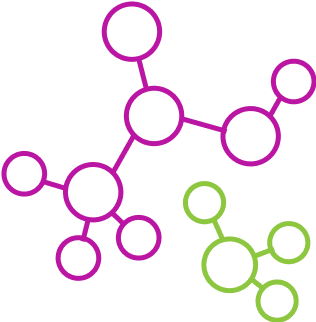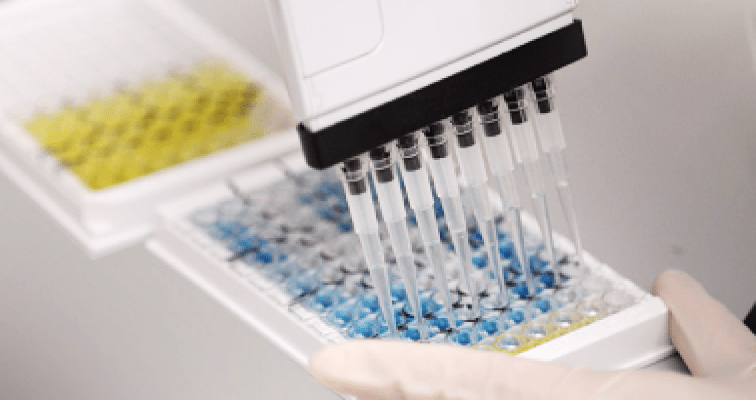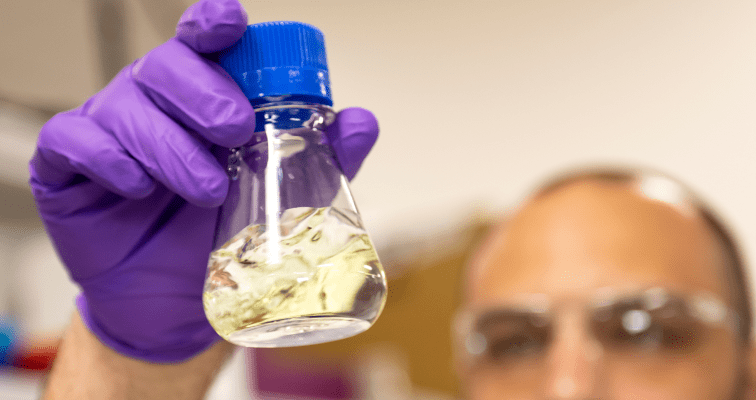Science
Matching the best treatment to each disease
In developing much-needed therapies for patients with serious rare and ultrarare genetic diseases, we match the best treatment modality to each disease—whether traditional biologics, small molecules, gene therapies, or nucleic acid therapies (ASO/mRNA). With an approach grounded in established science, learning directly from patients, and utilizing our significant rare disease drug development expertise, we have built a diverse portfolio of approved and investigational therapies aimed at addressing diseases with no approved treatment options.
Traditional biologics
CRYSVITA® (burosumab-twza) is a traditional biologic approved in the U.S. for X-linked hypophosphatemia (XLH) and tumor-induced osteomalacia (TIO).
MEPSEVII® (vestronidase alfa-vjbk) is the first and only enzyme replacement therapy approved in the U.S. for MPS VII.
UX143 (setrusumab) is an investigational, anti-sclerostin, fully human monoclonal antibody for the treatment of osteogenesis imperfecta.

Small molecules
DOJOLVI® (triheptanoin) oral liquid, a substrate replacement therapy, is a small molecule drug approved in the U.S. for the treatment of long-chain fatty acid oxidation disorders (LC-FAOD).
Gene therapy
For certain rare genetic diseases, gene therapy offers the potential for a durable treatment that could have a significant impact on patients’ lives. Our expertise in adeno-associated virus (AAV)—widely considered an ideal vector for gene therapy—has enabled us to develop one of the industry’s largest gene therapy portfolios.
We have a robust clinical pipeline of active gene therapy programs, as well as some undisclosed programs in early research:
- DTX401, an AAV8 gene therapy, advancing to a Phase 3 clinical trial for the treatment of glycogen storage disease type Ia (GSDla)
- DTX301, an AAV8 gene therapy, advancing to a Phase 3 clinical trial for the treatment of ornithine transcarbamylase (OTC) deficiency
- UX701, an AAV9 gene therapy, in a seamless Phase 1/2/3 study for the treatment of Wilson disease
With our clonal producer cell line (PCL) technology, we have established a new manufacturing system that can produce AAV vectors with increased efficiency and lower material costs than traditional methods, and at a scale that can help meet the rising demands of today’s gene therapy landscape. We are building a gene therapy manufacturing facility in Bedford, Massachusetts, to provide us with a flexibility and control of process that can further optimize the clonal PCL platform, ultimately broadening our future partnerships and advancing our own gene therapy pipeline.
![]()
Nucleic acid therapy (ASO/mRNA)
Nucleic acid (ASO/mRNA) has unique properties that allow us to tackle diseases that are untreatable with other modalities. For certain diseases, nucleic acid is the best option to successfully develop a therapeutic. It can be delivered in a lipid nanoparticle (LNP) to express a functional protein.
- GTX-102 is an investigational ASO therapy in development for the treatment of Angelman syndrome

Discover more about Ultragenyx:

Pipeline
See the progress we have made with our diverse portfolio of investigational therapies.
Explore our pipeline
